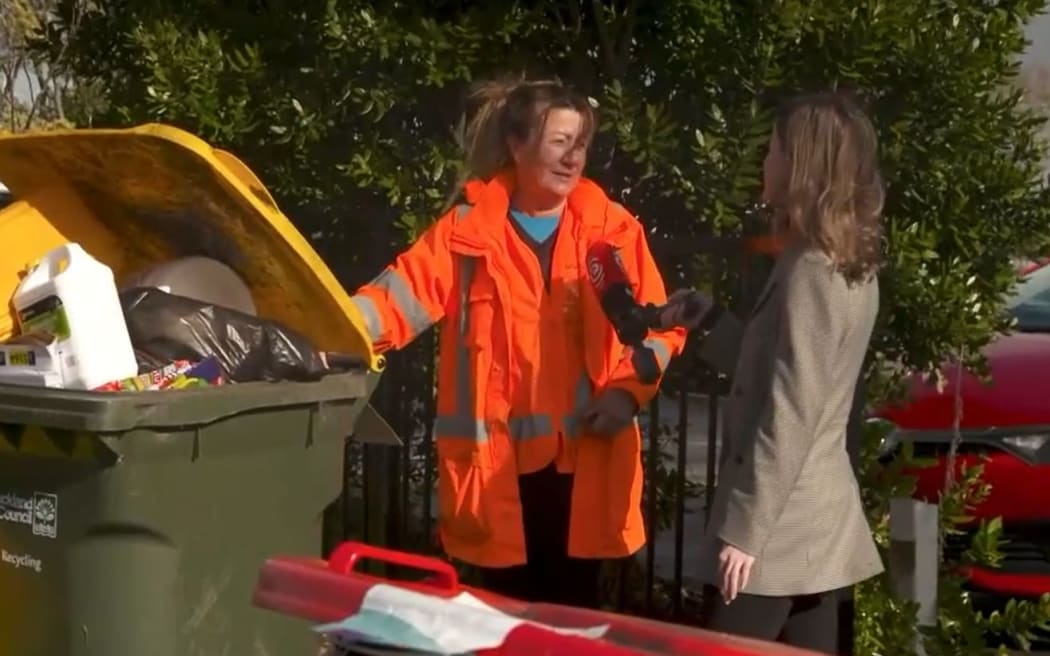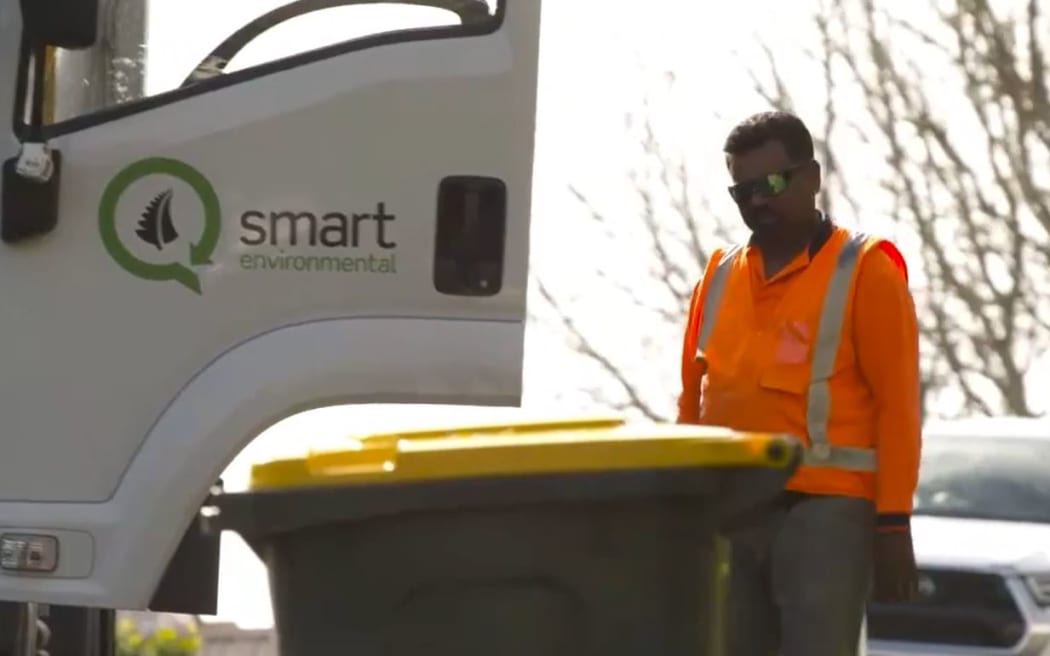Aucklanders are increasingly putting the wrong stuff in their recycling bins, often resulting in a lot of the contents going to landfill.
The council has found so-called "bin contamination" in the city has doubled over the last three years to over 20 percent of total waste. Recycling bins in public spaces are even worse - a staggering 80 percent of their contents should not be there.
The city's bins are also turning up some pretty weird items, ranging from a samurai sword to prosthetic body parts.
Thursday in Greenhithe was bin day - in fact it was a double whammy because it was also recycling day - So Checkpoint hitched a ride.
Bin Inspector Roz Millett walked about 20,000 steps every morning to check people were putting the right items in. She said often that was not the case.
"We get nappies, food waste and the some of it's not nice [be]cause then you get maggots, I've had a chainsaw in the bin, a whole chainsaw."
If the bin was contaminated it got a red or orange tag to inform the household and the driver got an alert not to pick it up.

Roz Millett (left) tells Louise Ternouth that there has been an increase in the number of recycling bins which cannot be picked up because they contain items that contaminate the recycling. Photo: RNZ / Marika Khabazi
Millett showed Checkpoint an offending bin that was overflowing with all sorts of the wrong stuff.
"This is just a minor offence, but because they have got food scraps it is automatically red tagged, it's got [the] wrong plastic."
With contamination on the rise Millett's job was getting more demanding.
"I used to have probably about 20 tags in my bag that I carry around, now I'll use that on one street," she said.
Once Millett had finished her inspections, rubbish truck driver Vijay collected the uncontaminated bins. Inside, the truck cameras allowed him to monitor what was being loaded in should anything evade Millett's inspections by hiding at the bottom of the bin.
He said it happened a lot - usually with bags of clothing or pillows sneaking in, then he pushed a contamination button which sent the household's address to council.
But by this point it was too late and a large part of the truck load was contaminated.

Rubbish truck driver Vijay collects all the recycling bins that are uncontaminated. Photo: RNZ / Marika Khabazi
Auckland Council general manager of waste solutions Parul Sood said that had multiple consequences.
"The wrong items have to be sent landfill so that's another cost ... the processing costs much more money and the last one is your markets they are commodity based if your product is not good, there is an effect on that as well."
In the last year they had had more and more strange items put in recycling that simply did not belong there.
"A pig's head, I mean that's clearly not recyclable, we've had guns in the mix as well and we've had engine blocks who thinks that's recyclable."
Once the bins had been collected they ended up at the Visy Recycling Centre in Onehunga. The yard's pungent smell and the flock of hungry seagulls were a dead give-away there were items that should not be there.
Each day around 250 tonnes of recycling got sent back out to landfill from the centre.
Recycling bins in public places were processed at a different facility, but their contamination rate was far higher at 80 percent, which meant it mostly could not be recycled at all.
The kerbside recycling sent to Onehunga was loaded onto a conveyer belt and then sorted and grouped into different materials. Paper, cans and plastics were processed into bales, along with glass over 120,000 tonnes, then went to market here and overseas.
If a resident's bin was red-tagged three times within three months, the council would consider removing their bin altogether. But offenders would receive two warning letters and an in person visit before it came to that.
Auckland Council said while the number of confiscated bins was relatively low, if contamination levels did not improve - tougher measures would be enforced.

